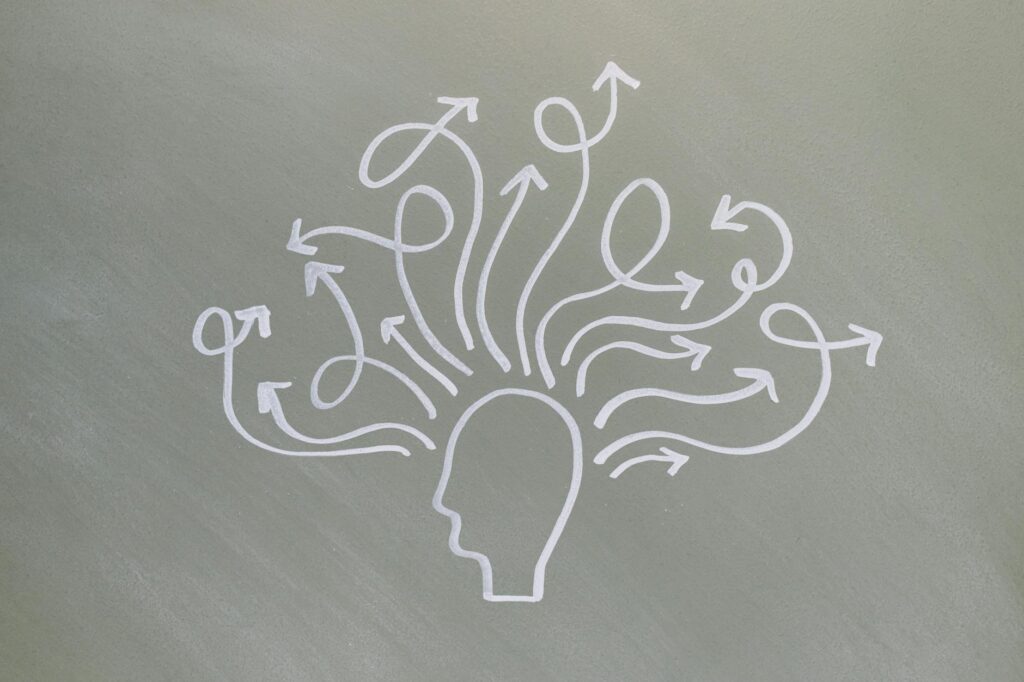What is subconscious mind?

What is subconscious mind?
The subconscious mind is a fascinating part of our mental landscape. It plays a crucial role in shaping our thoughts, behaviors, and decision-making processes. While we often think of the conscious mind as the one steering the ship, the subconscious is like the hidden engine beneath the surface, constantly influencing our experiences. Understanding this aspect of our psyche can lead to profound insights into our daily lives.
Understanding the Subconscious Mind
To grasp the concept of the subconscious mind, we first need to define what it is. The subconscious mind refers to the part of our mind that operates below the level of conscious awareness. It contains thoughts, memories, and experiences that influence our feelings and behaviors without us even realizing it.
What is the Subconscious Mind?
The subconscious mind is often described as a vast reservoir of information. Unlike the conscious mind, which focuses on immediate awareness and decision-making, the subconscious mind is more concerned with storing experiences, emotions, and learned behaviors. According to the Cambridge Dictionary, it relates to thoughts and feelings that exist in the mind and influence behavior without our awareness. This hidden aspect of our mind is responsible for automatic behaviors, habits, and even subconscious fears.
How the Subconscious Mind Works
The subconscious mind processes information differently from the conscious mind. While the conscious mind analyzes and evaluates data, the subconscious mind accepts experiences and information at face value. This means it can absorb beliefs and habits with little scrutiny. For example, if you’ve ever wondered why you feel anxious in certain situations, it could be due to an ingrained belief or past experience stored in your subconscious. It’s like a computer that records everything you input, but it doesn’t question the quality of that information.
The subconscious influences our behavior in subtle ways. It can trigger emotions based on past experiences, affecting our reaction to current situations. It’s also where our instincts and gut feelings originate, often guiding us in decision-making processes without conscious thought. As discussed in this article from Scientific American, our subconscious is always at work, influencing our perceptions and actions.
The Role of the Subconscious Mind in Daily Life
The impact of the subconscious mind is felt in many aspects of our daily lives. From our thoughts to our actions, it shapes our experiences in significant ways.
Influence on Thoughts and Emotions
Our thoughts and emotions are often colored by the subconscious mind. For instance, if someone has a fear of public speaking, this fear may stem from a past experience that resides in their subconscious. This connection can trigger anxiety even in unrelated situations. The subconscious can also reinforce positive emotions, like joy or contentment, when we surround ourselves with uplifting environments or affirmations.
The interplay between the subconscious and emotions is explored in depth in various resources, such as Understanding Your Subconscious Mind. These insights emphasize how the beliefs we hold in our subconscious can dictate our emotional responses.
Impact on Behavior and Decision Making
The subconscious mind significantly influences our behavior and decision-making. Many of our daily choices are made based on ingrained habits rather than deliberate thought. For example, when you instinctively reach for a snack after a long day, that behavior may be rooted in the subconscious association of food with comfort.
As highlighted in ResearchGate, our subconscious mind guides many of our actions, often without our conscious awareness. This means we might act based on beliefs we’ve accumulated over time, impacting everything from our relationships to our work performance.
Harnessing the Power of the Subconscious Mind
Understanding and leveraging the subconscious mind can lead to substantial personal growth. There are several techniques individuals can adopt to reprogram their subconscious beliefs and enhance their life experiences.
Techniques for Reprogramming the Subconscious Mind
-
Affirmations: Positive affirmations can reshape your internal dialogue. By consistently repeating affirmations, you can begin to change the beliefs stored in your subconscious.
-
Visualization: Imagine achieving your goals vividly. Visualization sends powerful signals to your subconscious, helping it align with your conscious desires.
-
Meditation: This practice calms the mind and fosters a connection with the subconscious. Through meditation, you can uncover and address limiting beliefs.
To explore more about techniques for reprogramming your subconscious mind, the article on How to Reprogram Your Subconscious Mind provides valuable insights.
Using the Subconscious Mind for Productivity
The subconscious mind can also be harnessed to boost productivity. Here are a few strategies:
-
Set Clear Goals: Clearly define what you want to achieve. The subconscious responds well to specific goals, making it easier to align your habits accordingly.
-
Create Positive Associations: If you associate work with positive feelings, your subconscious will drive you to seek those feelings regularly. Consider rewarding yourself for completing tasks to reinforce this association.
-
Practice Mindfulness: Being mindful allows you to recognize subconscious patterns and habits, enabling you to shift them consciously.
For practical strategies on boosting productivity through subconscious techniques, check out Increase Productivity with Subconscious Mind Strategies.
Conclusion
The subconscious mind is a powerful force influencing almost every aspect of our lives. By understanding how it works and its impact on our thoughts, emotions, and behaviors, we can begin to harness its potential for personal growth. Whether through affirmations, visualization, or mindfulness, there are numerous ways to reprogram our subconscious for better outcomes. Explore these techniques, and you might just unlock a new level of potential within yourself.

Photo by Tara Winstead